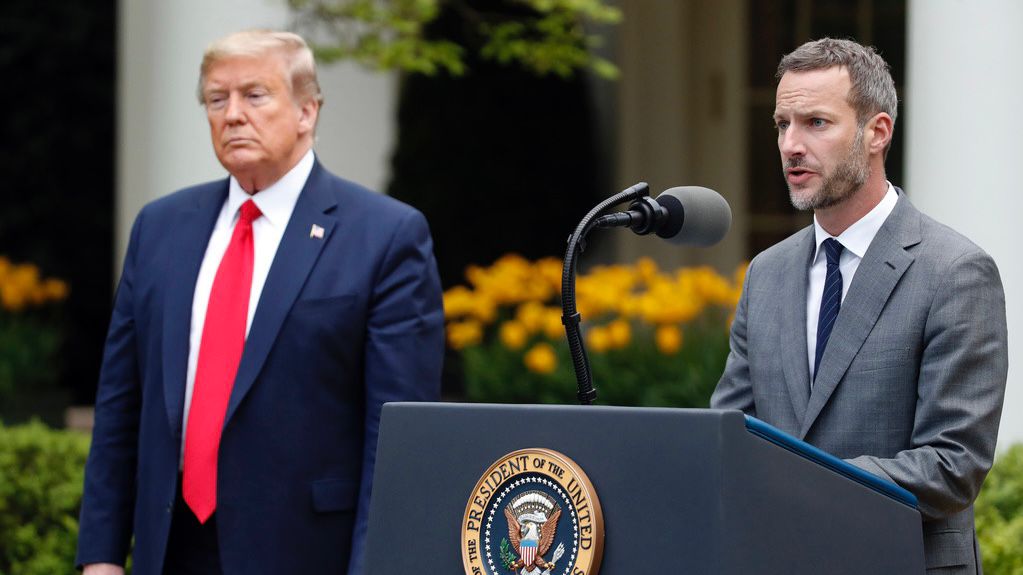While a number of races remain to be called in the midterm elections, it’s obvious that the so-called Red Wave predicted by Republicans will likely not sweep both chambers of Congress – and some experts are pointing fingers at former President Donald Trump as reason for the purpling tide.
The former president, while not on any ballot himself, endorsed around 300 candidates in the midterm elections. Some of his more high-profile selections lost their races; in Pennsylvania, Trump-backed Doug Mastriano lost the governor’s race to Democrat Josh Shapiro, as did Dr. Mehmet Oz, Trump’s pick for U.S. Senate in the state.
Other Trump-endorsed candidates, like J.D. Vance, who ran for U.S. Senate in Ohio, have won their races, while still others – like Georgia’s Senate race featuring Trump-backed Herschel Walker – remain to be called.
Still, it was a far smaller sweep than predicted or desired by the Republican party.
“We're all very surprised at the fact that the Republicans didn't do better than they were expected,” Sam Fulwood, a public policy analyst and dean of American University’s School of Communication, said on Wednesday. “And I think that's a rebuke of Trump and his policies.”
An interesting case study is Florida, where Republicans made hefty gains across the state compared to 2020. The state’s incumbent Republican Gov. Ron DeSantis handily won reelection, and even clinched historically left-leaning Miami-Dade County, becoming the first GOP gubernatorial candidate to win the county in two decades.
DeSantis’ decisive win came despite frequent jabs from Trump, who gave the governor the nickname “DeSanctimonious” and reportedly told journalists that DeSantis should not consider a 2024 run for president should Trump decide to announce his candidacy. Trump did, however, endorse DeSantis, and said he voted for the governor in Tuesday’s elections.
“If he runs, he runs,” Trump reportedly said of DeSantis on Monday evening, per the Wall Street Journal and the New York Times. “If he did run, I will tell you things about him that won’t be very flattering. I know more about him than anybody other than perhaps his wife, who is really running his campaign.”
In an interview with NewsNation on Tuesday, Trump made the case that his endorsement was crucial to DeSantis winning his first run for Florida's governorship in 2018.
"He was not going to be able to even be a factor in the race," Trump claimed. "And as soon as I endorsed him, within moments, the race was over. I got him the nomination. He didn’t get it. I got it, because the minute I made that endorsement, he got it."
"Then he ran and he wasn’t supposed to be able to win," Trump said of DeSantis' 2018 race. "I did two rallies, we had 52,000 people each one and he won. I thought that he could have been more gracious. But that’s up to him."
DeSantis, unlike during his 2020 campaign for governor, did not seek Trump’s assistance during the midterms – and it’s a choice some analysts are saying could boost his chances should he run for president.
“He now has a national platform, he now can claim – whether justified or not – that he is the front runner for the Republican nomination,” Fulwood said of DeSantis. “And he can also give the middle finger for Donald Trump. And so all of that I think makes him feel really really proud of himself.”
“You could say the limit for Republicans now is what to do about Trump. The limit for the Democrats is what to do if there is no Trump. And Democrats better watch out for what happened in Florida,” Pope “Mac” McCorkle, a professor at the Sanford School of Public Policy at Duke, said in a separate post-election press conference on Wednesday. “Democrats better consider what happens if there is no Trump in two years.”
An AP VoteCast survey conducted before the midterm elections found that one of President Joe Biden’s top issues – the survival of democracy in the wake of the Jan. 6 insurrection and the former president’s repeated and unfounded claims of election fraud – was a high priority for voters, though inflation and the economy were reliably the top concerns.
Around 44% of likely voters said the future of democracy was their primary consideration. On the campaign trail, Biden warned that Republicans are posing a threat to democracy. Many GOP leaders continue to cast doubt on the U.S. electoral system, falsely claiming that the 2020 presidential election, which Trump lost, was rigged.
Those sentiments were largely in line with exit polls that have slowly started to emerge, with some indicating that their vote was against Donald Trump, instead of for another candidate.
“One of the most striking findings from the national exit polls that I've seen is that three out of 10 voters said that their vote for U.S. House was intended as an expression of opposition to Donald Trump,” Asher Hildebrand, an associate professor at Duke’s Sanford School, echoed. “And so I think that, combined with Ron DeSantis’ very strong showing in the Florida governor's race, is probably going to increase pressure among Republican elites to find another standard bearer for 2024.”
Even before the midterm elections, Trump had faced veiled criticism from within the Republican party for some of his candidate choices, with Sen. Mitch McConnell – who will become Senate Majority Leader should the GOP retake the chamber after all election results are in – said it was more likely Republicans would win the House than the Senate, saying “candidate quality has a lot to do with the outcome” in the latter races.
The sentiment was shared by Sarah Matthews, who served as deputy press secretary during the Trump administration but who resigned in the wake of the Jan. 6, 2021 insurrection on Capitol Hill.
“Last night was the biggest indicator that Donald Trump should not be the Republican nominee in 2024,” Matthews wrote in a series of tweets. “He cost the GOP winnable seats by boosting poor quality candidates.”
Trump was reportedly infuriated by Tuesday’s election results and the subsequent finger-pointing in his direction, having said of his endorsed candidates in a NewsNation interview on Election Day: "Well, I think if they win, I should get all the credit. If they lose, I should not be blamed at all."
But a Trump spokesperson pushed back against claims that the former president’s candidates did not perform well, saying in part: "It was a big night for President Trump’s endorsed candidates. Out of the races that have been called, President Trump has racked up over 215 wins for his endorsements—a truly unprecedented accomplishment & something only possible because of President Trump's ability to pick & elect winners.”
While the former president has not formally announced whether or not he will run for the nation’s highest office again in two years, Trump has teased an announcement to come on Nov. 15, which many expect will be his candidacy for president.








